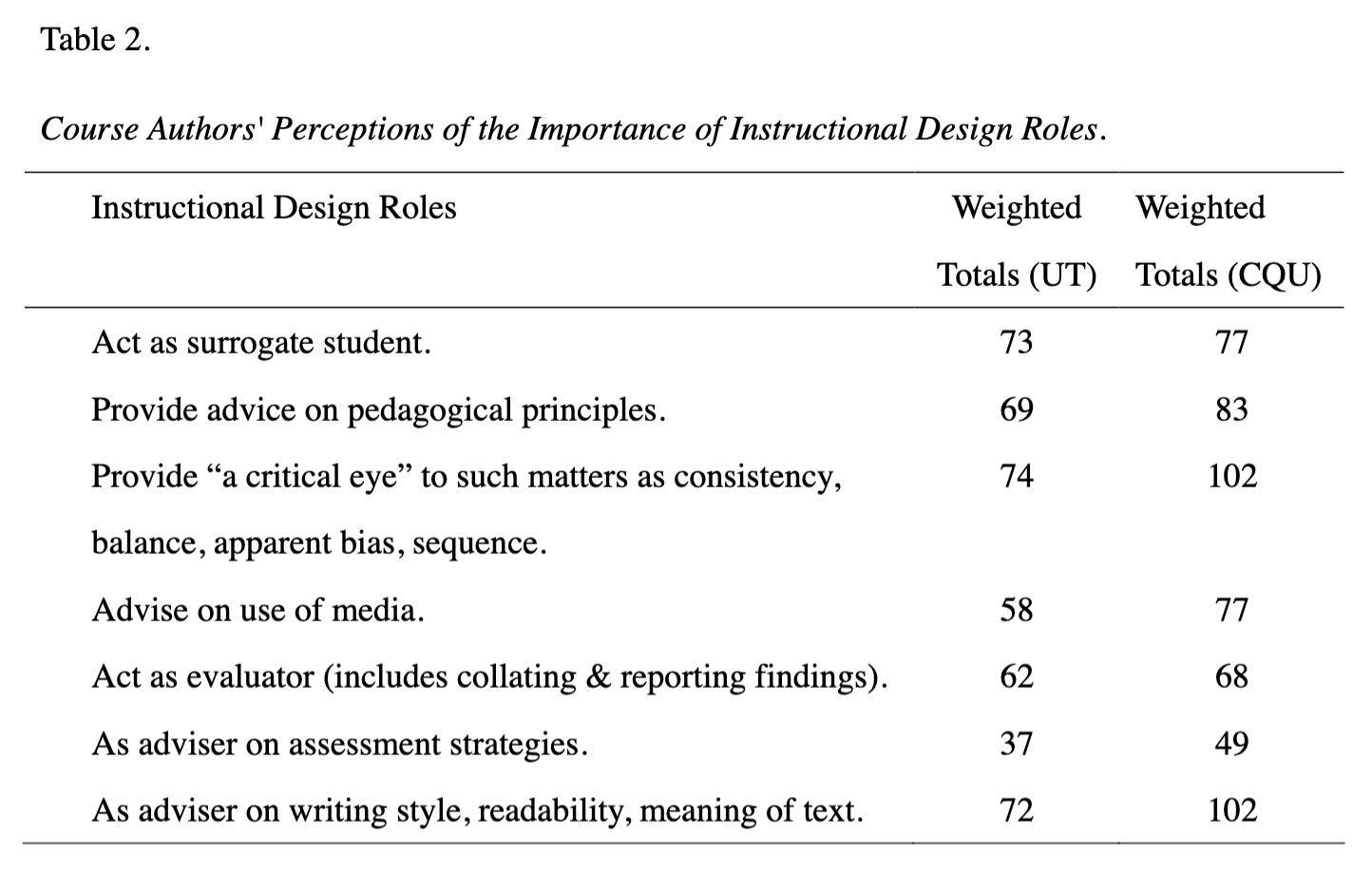In 2005, now Emeritus Professor, Richard Schwier, Educational Technology and Design, USask and Dean Emeritus at the Faculty of Extension, U of A, Katy Campbell, along with two other authors, published a literature review of What Instructional Designer’s Do.
In this post we attempt to summarize and demystify some of those findings as they relate to the work of the Instructional Designers (ID) here at the Distance Education Unit. We’ve condensed the multitude of roles that an ID performs into 4 categories:
- Change agency
- Professional Development Facilitator/Coordinator
- Quality Assurance
- Project Coordinator
Change Agency
Much of the published research by Dr. Katy Campbell looks at change agency as it relates to the role of the Instructional Designer. Working closely with course authors from across disciplines, schools, departments and colleges, IDs find ourselves in a unique position to identify and propose opportunities for positive change. Together with course authors we can support USask initiatives outlined in the International Plan and Indigenous Strategy by collaboratively building international and cross-cultural content and discover meaningful ways to indigenize academia at the course and program level.
Professional agency for the evolving field of instructional design demands that we remain thoroughly conversant in emergent best practices for online teaching and learning, learning design and educational technology trends on the horizon. The DEU Development team regularly publishes, presents, and interacts within our discipline’s communities of practice. Leveraging this professional agency, course authors can focus on their areas of expertise during a collaborative development without having to complete their own graduate degree in educational technology and design.
Learner advocacy is inherent in the role of the ID. We design for those who are directly impacted by what we create. From the organization of materials, clarity of instructions, to scaffolding of concepts, and considerations for accessibility and access, we act as a surrogate learner to help identify and mitigate confusion and frustration. Solutions and options can then be presented based on sound educational theory and current trends in effective online teaching and learning strategies.
 Professional Development Facilitator/Coordinator
Professional Development Facilitator/Coordinator
Learner advocacy goes beyond advocating for those whose learning will be influenced by the success of the instructional design and extends to those course authors who, throughout the process of instructional design, learn how to perform in new learning environments. (Campbell, et. al., 2004)
We are teachers. Although we rarely teach a 13 week 3 credit course we are inherently training instructors to effectively design for and use the available learning technologies at USask. By focusing on the context of the specific course activities as the basis for PD in a particular learning technology, course authors are able to refine their activity designs, learn the technical how-to’s and discover the effective facilitation strategies during the development process.
Active professional agency also keeps IDs abreast of not only USask training opportunities, but also national and international opportunities for webinars, short courses and simple tutorials for almost any teaching and learning interest. Curated links to relevant content, tutorials and training are commonly shared throughout a collaborative development to enhance an instructor’s learning opportunities.
 Quality Assurance
Quality Assurance
In the above mentioned literature review from the Canadian Journal of Learning and Technology Campbell et. al., 2005 looked at the breadth of support a course author might receive when collaborating with an Instructional Designer for a web-based course.
Two Australian articles reviewed surveyed course authors and asked them to weigh their perceptions of importance of 7 ID roles commonly cited by previous studies as improving the quality of their online courses. The results of this survey, seen below, indicate the value course authors commonly place on the quality assurance roles of the ID.

 Project Coordinator
Project Coordinator
Full collaborative course developments for online learning require some organization. Sometimes having an assistant to schedule meetings, track timelines, and communicate with various stakeholders can keep the project running smoothly and deadlines met.
DEU works closely with other support units across campus including IT Training, Learning Technologies, Media Production and the Centre for Teaching and Learning. Communicating with these various groups during a development project IDs can help to organize Canvas course development shells, learning technology integrations, media production services and more.
The development team at DEU goes beyond including 4 instructional designers and also includes a Copyright Coordinator and and Instructional Technologies Coordinator. These critical support staff reduce further fatigue on a project by managing all the copyright licensing documentation and issues as well as providing personal technical support both during development and during the pilot delivery phase.
At times, Department Heads and Deans request that they be kept in the loop for high profile course developments. Assembling project reports and summarizing progress can be managed by IDs giving course authors valuable time back for further development.
References: Schwier, Richard & Campbell, Katy & Kenny, Richard. (2021). Transforming Higher Education: Agency and the Instructional Designer. Kenny, Richard & Zhang, Zuochen & Schwier, Richard & Campbell, Katy. (2005). A Review of What Instructional Designers Do: Questions Answered and Questions Not Asked1. Canadian Journal of Learning and Technology. 31. 10.21432/T2JW2P.


